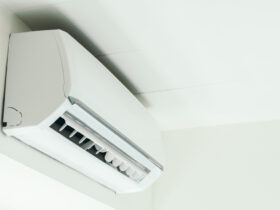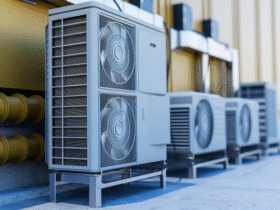Hot water service breakdowns are more than just an inconvenience; they disrupt your daily life and can signal serious underlying issues. When your hot water service fails unexpectedly, you need immediate, reliable repair from licensed professionals available around the clock. Ignoring leaks, strange noises, or complete loss of hot water risks property damage, inflated energy bills, and even health hazards. Our expert team provides rapid diagnosis and lasting repairs for all major brands and system types, restoring essential hot water to your home swiftly and safely. Don’t endure cold showers or uncertainty – professional help is just a call away, day or night.
Understanding Your Hot Water Service System
Grasping how your hot water system operates is the first step in recognizing potential problems. Most Australian homes rely on one of these primary setups:
- Storage Tank Systems (Electric or Gas): The most common type. A large insulated tank constantly heats and stores water ready for use. Electric models use heating elements, while gas units utilize a burner. Key components include the tank, thermostat, pressure relief valve, and anode rod (sacrificial rod preventing tank corrosion).
- Continuous Flow (Instantaneous or Tankless) Systems: These energy-efficient units heat water on-demand as it passes through a heat exchanger, activated when a hot tap is turned on. Gas models are prevalent, but electric versions exist. They provide endless hot water but have higher upfront costs and specific flow rate requirements.
- Heat Pump Systems: These extract ambient heat from the air to warm the water stored in a tank. Highly energy-efficient, especially in warmer climates, but performance can dip in very cold weather. They require adequate space and airflow around the outdoor unit.
- Solar Hot Water Systems: Utilize solar collectors (panels) on the roof to heat water, stored in an insulated tank. Usually backed up by electric or gas boosting for cloudy days. Offer significant long-term energy savings but require higher initial investment and suitable roof orientation.
Critical Warning Signs Your Hot Water Service Needs Urgent Attention
Never ignore these red flags indicating your hot water unit is failing or poses a risk:
- No Hot Water (At All or Inconsistent Supply): The most obvious emergency. Could point to a failed heating element, gas supply issue, thermostat malfunction, pilot light outage (gas), or a major system fault.
- Leaking Tank or Pipes: Water pooling around the base of the tank or from pipes/valves is a critical sign. A leaking tank often signifies internal corrosion and usually requires immediate replacement. Pipe or valve leaks need prompt repair to prevent water damage and mould.
- Discoloured or Rusty Water: Brown, yellow, or reddish water from your hot taps indicates internal corrosion within the tank or pipes. This compromises water quality and suggests the tank liner is failing.
- Strange Noises (Rumbling, Popping, Banging): Excessive sediment buildup at the bottom of a storage tank overheats and causes rumbling or banging sounds. Popping can indicate scale on heating elements. These noises signal reduced efficiency and imminent failure.
- Fluctuating Water Temperature: Water that’s scalding hot one second and freezing cold the next points to a faulty thermostat, a failing heating element, or issues with a mixing valve.
- Low Water Pressure (Hot Taps Only): Sediment accumulation blocking pipes or the unit’s outlet specifically affecting hot water flow indicates a serious internal blockage requiring professional flushing or component replacement.
- Foul Odours (Rotten Egg Smell): A sulphur smell from hot water often indicates bacteria reacting with the anode rod inside the tank, requiring disinfection or anode replacement.
- Visible Corrosion or Rust: Rust on the tank exterior, pipes, or valves is a clear visual indicator of deterioration and potential for leaks.
Why Delaying Emergency Hot Water Repairs is a Costly Mistake
Putting off necessary repairs always leads to worse outcomes and higher expenses:
- Escalating Damage & Cost: A small leak can quickly flood your home, damaging floors, walls, cabinetry, and personal belongings. What might have been a simple valve repair becomes a major water damage restoration project costing thousands.
- Skyrocketing Energy Bills: A malfunctioning system works harder to heat water. A faulty thermostat, sediment buildup, or a leaking tank forces the unit to run constantly, wasting significant energy. Your bills will reflect this inefficiency.
- Complete System Failure: Ignoring warning signs like noises or minor leaks often results in the catastrophic failure of the tank or critical components, leaving you completely without hot water and facing a full, unplanned replacement cost.
- Health and Safety Hazards: Scalding risks from faulty thermostats, potential gas leaks (with gas systems), electrical hazards (with electric systems), and bacterial growth (like Legionella) in lukewarm water tanks are serious concerns. Mould from leaks also poses respiratory health risks.
- Voided Warranties: Most manufacturers require professional servicing and repairs to maintain warranty coverage. DIY attempts or using unlicensed plumbers can void your warranty, leaving you liable for the full cost of any future failures.
DIY Troubleshooting: Simple Checks Before Calling the Emergency Plumber
While most repairs require a licensed professional, you can safely perform these basic checks:
-
Check the Power Source:
-
Electric Systems: Ensure the circuit breaker for the hot water unit hasn’t tripped in your switchboard. Reset it if it has. If it trips again immediately, do not reset again – call a plumber/electrician.
-
Gas Systems: Verify the gas isolation valve near the unit is fully open. Check if the pilot light is out (look through the viewing window). If it’s out, follow the manufacturer’s instructions carefully to relight it. If it won’t stay lit, call for service.
-
-
Inspect the Pressure Relief Valve: Locate the valve (usually a pipe with a small lever on the side or top of the tank). Place a bucket underneath. Carefully lift the lever slightly and let it snap back. You should see a burst of water and steam discharge into the bucket. If no water comes out, or it continues to drip excessively afterwards, the valve may be faulty and needs professional replacement. Caution: Water may be very hot.
-
Check Water Supply Valves: Ensure the main cold water isolation valve supplying the hot water unit is fully open.
-
Reset High-Temperature Cut-Out (Electric Models): Some units have a red reset button (often behind a panel). Press it firmly once. If it clicks, it may reset. If it trips again immediately, call a plumber.
-
Test Multiple Taps: Run hot water at several faucets. If it’s only cold at one tap, the issue might be isolated to that fixture (e.g., a blocked faucet aerator) rather than the main system.
Crucial: If the problem persists after these checks, involves leaks, gas smells, electrical issues, or no hot water at all, STOP and call a licensed emergency hot water service plumber immediately. Safety is paramount.

Choosing the Right Emergency Hot Water Service Plumber: Don’t Get Left in the Cold
In an emergency, it’s tempting to call the first available number. Protect yourself and your investment by verifying:
- Valid Plumbing License: This is non-negotiable. Ask for their license number and verify it online with your state’s licensing authority (e.g., VBA in Victoria, NSW Fair Trading). Licensed plumbers have the training and legal authority to work on gas and water systems safely.
- Specialisation & Experience: Ask specifically about their experience with your type of hot water system (brand, model, gas/electric/solar/heat pump). Do they carry common parts for major brands?
- Genuine 24/7 Availability: Confirm they offer true round-the-clock emergency call-outs, not just business hours with an answering service.
- Transparent Pricing & Quotes: Reputable plumbers provide clear pricing structures for emergency call-outs, labour, and parts. They should offer an upfront estimated cost range before starting major work and explain any potential variables. Be wary of suspiciously low quotes.
- Insurance: Ensure they hold current Public Liability Insurance and Workers Compensation Insurance. This protects you if accidents occur on your property.
- Local Reputation & Reviews: Check Google My Business, ProductReview.com.au, and local community forums for genuine customer feedback. Look for consistent mentions of reliability, professionalism, and fair pricing in emergency situations.
- Guarantees/Warranties: Do they offer a warranty on both parts and labour for repairs? What is the duration?
- Clear Communication: The plumber should clearly explain the problem, the proposed solution, and the costs involved in a way you understand. They should answer your questions patiently.
Our Proven Emergency Hot Water Service Repair Process: Fast & Reliable
When you call us for an emergency, here’s what you can expect:
- Immediate Response & Dispatch: Our 24/7 call centre takes your details and dispatches the nearest available licensed plumber equipped for hot water system emergencies.
- Rapid Arrival: We prioritize emergencies and provide an estimated time of arrival (ETA). Our plumber will call en route if possible.
- Thorough Diagnosis & Explanation: The plumber conducts a comprehensive inspection of your system, identifies the root cause of the failure, and clearly explains the issue to you.
- Transparent Quote & Approval: You receive a detailed quote outlining the necessary repairs, parts required, labour costs, and total price. Work only proceeds with your explicit approval.
- Expert Repair Using Quality Parts: Our plumber performs the repair using high-quality, compatible replacement parts, adhering to strict Australian Standards and safety regulations.
- System Testing & Verification: After the repair, the system is rigorously tested to ensure it’s operating safely, efficiently, and delivering hot water reliably.
- Clean-Up & Debrief: The work area is cleaned up. The plumber explains the work done, provides care advice, and answers any final questions. You receive a detailed invoice.
Preventive Maintenance: Extend the Life of Your Hot Water Service
Regular professional maintenance is the best way to avoid emergencies, improve efficiency, and maximize your system’s lifespan:
Annual Professional Servicing: A licensed plumber should inspect your system yearly. This includes:
- Checking and testing the pressure relief valve.
- Inspecting for leaks and corrosion.
- Testing thermostat operation and temperature settings (usually recommended at 60°C at the tank to prevent Legionella).
- Checking anode rod condition (in storage tanks) and replacing if heavily depleted (typically every 5-7 years, but varies).
- Inspecting flue/exhaust (gas systems).
- Checking electrical connections and safety switches (electric systems).
Repair or Replace? Making the Smart Decision for Your Hot Water Service
When faced with a significant repair, consider these factors:
- Age of the Unit: If your system is approaching or exceeding its typical lifespan (10-15+ years), replacement is usually more cost-effective long-term, even for a moderately expensive repair. Older units are less efficient and prone to further failures.
- Cost of Repair vs. Replacement: As a rule of thumb, if the repair cost exceeds half the price of a comparable new, energy-efficient unit, replacement is generally the better investment. Factor in potential energy savings from a new model.
- Frequency of Repairs: Have you needed multiple repairs in the last few years? This signals the system is failing and replacement is imminent.
- Energy Efficiency: Newer models (especially heat pumps, solar, and high-efficiency gas continuous flow) are significantly more energy-efficient than older units. Calculate potential savings on your energy bills – they can offset the replacement cost over time.
- Changes in Household Needs: Has your family size increased? Do you need more hot water capacity? Upgrading to a larger or more suitable system type might be necessary.
- Availability of Parts: For very old or obsolete models, finding replacement parts can be difficult and expensive, making repair impractical.
Understanding the Costs of Emergency Hot Water Service Repairs
Emergency repair costs vary based on several factors:
- Type of Repair: Simple fixes (e.g., replacing a pressure relief valve, relighting a pilot light) cost significantly less than complex repairs (e.g., replacing a heating element, fixing internal tank leaks which often necessitates replacement) or installing a new unit.
- Time of Day: Emergency call-outs outside standard business hours (evenings, nights, weekends, public holidays) typically incur higher call-out fees and labour rates.
- Parts Required: Costs vary widely depending on the component needed (thermostat vs. heat exchanger) and the brand of your system. Genuine parts are more expensive but recommended.
- System Type & Accessibility: Repairs on complex systems (heat pumps, solar) or units in hard-to-reach locations (tight cupboards, high ceilings) may take longer and cost more.
- Plumber’s Rates: Different companies have different pricing structures for labour and call-outs.
Typical Cost Ranges (Indicative Only – Always Get a Quote):
- Emergency Call-Out Fee: $100 – $250+ (after hours/weekends higher)
- Labour (per hour): $120 – $200+ (after hours/weekends higher)
- Common Part Replacements:
- Thermostat: $150 – $400 (parts only)
- Heating Element (Electric): $100 – $300 (parts only)
- Pressure Relief Valve: $80 – $200 (parts only)
- Anode Rod: $100 – $300 (parts only)
- Gas Control Valve: $300 – $800+ (parts only)
Why Choose Us for Your Emergency Hot Water Service Needs?
When disaster strikes your hot water, you need more than just a plumber; you need a trusted partner committed to restoring your comfort swiftly and safely:
- Licensed & Highly Experienced Hot Water Specialists: Our team holds full plumbing licenses with specific expertise across all major hot water system brands and types (electric, gas, solar, heat pump, storage, continuous flow). We’ve seen – and fixed – it all.
- True 24/7 Emergency Availability: Hot water emergencies don’t wait for business hours. We operate 24 hours a day, 365 days a year, including all public holidays. Our rapid-response teams are strategically located.
- Fast Response Times: We understand urgency. When you call, we prioritize your emergency and dispatch the closest available technician immediately, providing clear ETAs.
- Transparent, Upfront Pricing: No nasty surprises. Before any work begins, we provide a clear, detailed quote explaining the required repairs, parts costs, labour charges, and the total. You approve everything upfront.
- Quality Repairs with Premium Parts: We use only high-quality, reliable replacement parts backed by manufacturer warranties, ensuring your repair lasts. Our workmanship is guaranteed.
- Comprehensive Service: From initial diagnosis and urgent repair to full system replacements and preventive maintenance plans, we offer a complete solution for your hot water needs.
- Local Expertise, Trusted Reputation: We’re part of your community. Our commitment to excellence is reflected in our consistently high customer ratings and reviews. We take pride in solving your plumbing problems reliably and professionally. For residents needing dependable hot water service Mount Waverley locals trust, we’re the proven choice.
- Safety First Approach: All work is performed strictly according to Australian Standards and safety regulations. Your family’s safety is our top priority.
FAQs: Your Emergency Hot Water Service Questions Answered
Q: My hot water is completely gone! What should I do right now?
A: Perform the basic DIY checks (power, gas, pilot light, pressure valve test). If the issue isn’t resolved, call a licensed emergency plumber immediately. Avoid using the system until it’s inspected.
Q: I have a leak near my hot water tank. Is this an emergency?
A: YES. Any leak from the tank itself or associated pipes/valves requires immediate professional attention. Turn off the cold water supply valve to the tank if safe to do so, and call an emergency plumber right away.
Q: How long should my hot water system last?
A: Lifespan varies:
Storage Tanks (Electric/Gas): 10-15 years.
Continuous Flow (Gas): 15-20+ years.
Heat Pumps: 10-15 years (compressor), tank similar to storage.
Solar: 15-20+ years (tank), panels 15-20+ years.
Regular maintenance significantly extends lifespan.
Q: Why is my water not getting hot enough?
A: Common causes include a faulty thermostat, a failing heating element (electric), a blocked burner or gas supply issue (gas), sediment buildup insulating the element/burner, or a problem with the tempering valve (mixing cold water). Needs professional diagnosis.
Q: What causes loud rumbling noises from my hot water tank?
A: This is almost always caused by significant sediment buildup (minerals, scale) at the bottom of the tank. The sediment traps heat, causing water beneath it to boil and create steam bubbles that collapse violently (kettling). The tank needs urgent professional flushing and the anode rod checked.
Q: Is it safe to try and repair my hot water system myself?
A: Generally, NO. Hot water systems involve high pressure, high temperatures, electricity, and potentially gas. DIY repairs are extremely dangerous and illegal for gas and major electrical work. They can also void warranties and cause further damage. Always use a licensed plumber.
Q: How often should I service my hot water system?
A: We strongly recommend an annual service by a licensed plumber. This preventive maintenance catches small issues before they become expensive emergencies, ensures safety, maintains efficiency, and prolongs the system’s life.
Q: Can a faulty hot water system increase my energy bills?
A: Absolutely. Issues like sediment buildup, a failing thermostat, leaks, or a damaged tank liner force the system to work much harder and longer to heat water, consuming significantly more energy (electricity or gas).
Don’t Suffer Through a Hot Water Emergency. We’re Here to Help!
A sudden loss of hot water isn’t just uncomfortable; it disrupts your entire household routine and can lead to costly damage or safety risks. Ignoring warning signs like leaks, strange noises, or lukewarm water only makes the problem worse and more expensive to fix. When your hot water service fails, you need prompt, professional, and reliable assistance from experts who understand the urgency.









Leave a Review